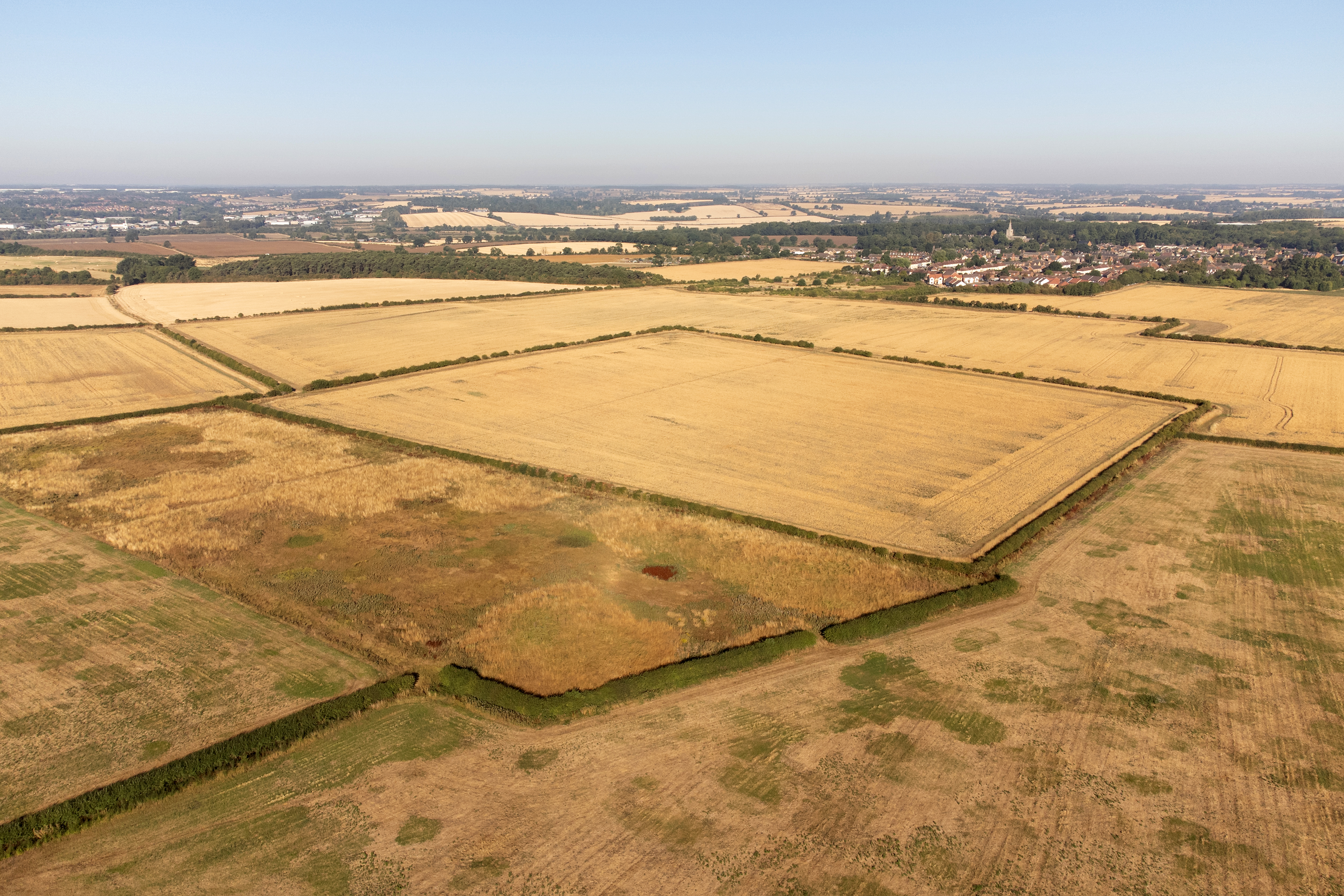
Plant biologists in Edinburgh are set to work with European scientists to determine whether microbes from hundreds of thousands of years ago can help present-day plant species adapt to climate change.
The Heriot-Watt University team has been awarded £500,000 by Horizon Europe, a European Union scientific research initiative, to work on the four-year project.
The scheme, called Tolerate, is examining ancient soil samples extracted from deep below the Arctic.
Dr Ross Alexander, a plant molecular biologist at Heriot-Watt, said: “The Tolerate team is using samples from the palaeolithic period, around 100-200,000 years ago, because the planet was warming then, much like now.
“The project aims to find out whether the plants, soil and bacteria of the past can help our current crops survive in a rapidly changing planet.
READ MORE: Edinburgh Beltane Fire Festival 2024 sees huge crowds on Calton Hill
“Drought is a particular concern for crops around the world. According to the latest report of the European Drought Observatory, 47% of the EU is in warning conditions and 17% is in alert conditions. Cereal yields are decreasing by as much as 10% in some areas.”
 Experts have warned droughts will increasingly affect crops around the world (PA)
Experts have warned droughts will increasingly affect crops around the world (PA)
Tolerate scientists at Alfred Wegener Institute in Germany have already dissected the DNA of some of the prehistoric bacteria from the samples.
The Heriot-Watt team will run tests to determine whether this ancient DNA can help present-day bacteria support plants when water is scarce.
Dr Alexander said: “Bacteria play a huge role in plant health. They release compounds that might help plants retain moisture around the roots, act like glue to help maintain the soil or help the plants take up the nutrition they need.
“We’ll be using above-ground controlled growth chambers to see if we can use the bacteria to drought-proof barley, one of Scotland’s biggest crops.”
READ MORE: Ancient house's marriage stone mystery solved after 350 years
Professor Stephen Euston, an expert in food chemistry at Heriot-Watt, said: “We’re in touch with farmers and landowners across Scotland to source soil samples.
“Agricultural systems in the UK and worldwide are facing multiple stresses, including climate change, pressure for land for housing and population increases.
“If we could grow food crops like barley on marginal land that’s currently unsuitable for agriculture because of issues like drought, there would be huge economic and social benefits.
“Additionally, the molecules these bacteria produce to help improve soil and water availability to crops could have valuable uses elsewhere.
“We are working towards producing large enough quantities of these molecules to be tested in biomedical and industrial cleaning applications, for example.
“Having access to these ancient samples is an incredible bonus. There could be a huge wealth of biological resources that we could tap into to improve our current and future environment in Scotland and around the world.”
The team will be recruiting a PhD student and a postdoctoral student to help with the research.



Why are you making commenting on The Herald only available to subscribers?
It should have been a safe space for informed debate, somewhere for readers to discuss issues around the biggest stories of the day, but all too often the below the line comments on most websites have become bogged down by off-topic discussions and abuse.
heraldscotland.com is tackling this problem by allowing only subscribers to comment.
We are doing this to improve the experience for our loyal readers and we believe it will reduce the ability of trolls and troublemakers, who occasionally find their way onto our site, to abuse our journalists and readers. We also hope it will help the comments section fulfil its promise as a part of Scotland's conversation with itself.
We are lucky at The Herald. We are read by an informed, educated readership who can add their knowledge and insights to our stories.
That is invaluable.
We are making the subscriber-only change to support our valued readers, who tell us they don't want the site cluttered up with irrelevant comments, untruths and abuse.
In the past, the journalist’s job was to collect and distribute information to the audience. Technology means that readers can shape a discussion. We look forward to hearing from you on heraldscotland.com
Comments & Moderation
Readers’ comments: You are personally liable for the content of any comments you upload to this website, so please act responsibly. We do not pre-moderate or monitor readers’ comments appearing on our websites, but we do post-moderate in response to complaints we receive or otherwise when a potential problem comes to our attention. You can make a complaint by using the ‘report this post’ link . We may then apply our discretion under the user terms to amend or delete comments.
Post moderation is undertaken full-time 9am-6pm on weekdays, and on a part-time basis outwith those hours.
Read the rules here